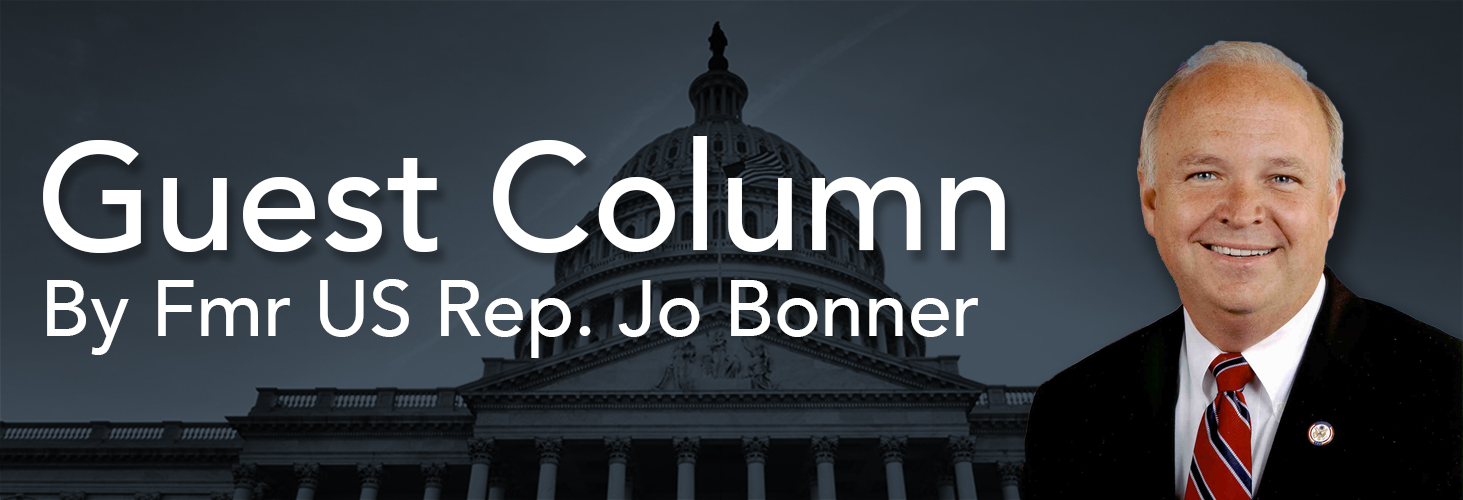By U.S. Representative Jo Bonner
March 23, 2013, marked the third anniversary of the signing of President Obama’s signature legislation, the Patient Protection and Affordable Care Act. As “Obamacare,” continues to move toward full implementation less than a year from now, its impact on the cost of health care for employers and employees is steadily coming to light.
From the beginning, President Obama has maintained that his health care law would bring down premium costs while expanding coverage. However, a constant stream of news reports indicates that is not the case. It seems everything about Obamacare is more costly than the president promised, including the price tag of the law itself. Originally calculated to total $940 billion, Obamacare costs are now projected to run as high as $1.7 trillion over ten years.
In 2008, candidate Obama pledged that his health care plan would lower the average family’s premiums by $2,500. Last week, a report by the nonpartisan Society of Actuaries revealed that medical claims for individual health policies could jump up to 32 percent under Obamacare, which in turn, will likely lead to increased premiums for those insured. The Actuaries report is but one of many such indicators that Obamacare will carry a higher price for many.
The Centers for Medicare and Medicaid Services has recently joined the chorus by noting that once the Obamacare exchanges and the Medicaid expansion come online next January, private health insurance premiums will rise 108 percent faster than before. Overall, national health spending is expected to increase 39.6 percent faster than prior to the implementation of Obamacare.
After four years of denying any negative impact of Obamacare, last week the administration finally began to admit that its new health care law will usher in higher premiums for at least some people. Health and Human Services Secretary Kathleen Sebelius conceded that some men and younger customers may see their rates climb.
Rising premiums are not the only negative side effect of the new health care law. Obamacare is also likely to result in either the loss of jobs or work hours for some small business employees. Under the Act, businesses employing more than 50 will face a penalty if they fail to provide affordable coverage for their full-time employees. Obamacare considers a full-time employee as someone who works 30 hours a week, rather than 40. As small businesses are forced to pay for health care for essentially part-time workers, they will be less inclined to hire new workers. At the same time, some small businesses will be faced with the choice of reducing their employees or cutting back on their hours in order to cope with these additional costs.
A recent Hudson Institute study projects as many as 3.2 million full-time employees in the hospitality, restaurant and leisure industries could be adversely affected by the Obamacare mandate on employers. In Alabama, over 155,000 people work in these industries and nearly 55,000 are at risk of losing their jobs according to the study.
High health care premiums and potential loss of jobs and work hours are not the entirety of the painful consequences of Obamacare. President Obama said before a Joint Session of Congress on September 9, 2009, “Nothing in this plan will require you or your employer to change the coverage or the doctor you have. Let me repeat this: Nothing in our plan requires you to change what you have.”
Just like his promise to deliver lower premiums, this too is failing to stand up to scrutiny. The nonpartisan Congressional Budget Office (CBO) reported in February that as many as seven million people will be pushed out of their existing work-provided health coverage under Obamacare.
Not surprisingly, a majority of Americans continue to oppose the president’s health care law. A recent Kaiser Family Foundation poll indicates that only 37 percent of Americans approve of Obamacare.
I voted against Obamacare both in 2009 and in 2010 when the health care law came before the House. Subsequently, I have voted at least twice to repeal it outright, and, I’ve voted nearly two dozen times since 2011 to weaken or restrict funding for all or part of Obamacare. The latest example was my vote on March 21, 2013, for the House Republican Budget. The House-passed budget removes all funding for the president’s health care law.
As Speaker John Boehner noted after the passage of our budget, “The House will continue working to scrap the law (Obamacare) in its entirety, and will use oversight authority to expose its harmful impacts as they continue to unfold…we remain committed to fully repealing and replacing it with better solutions that lower health care costs and increase access to quality care.”


















































